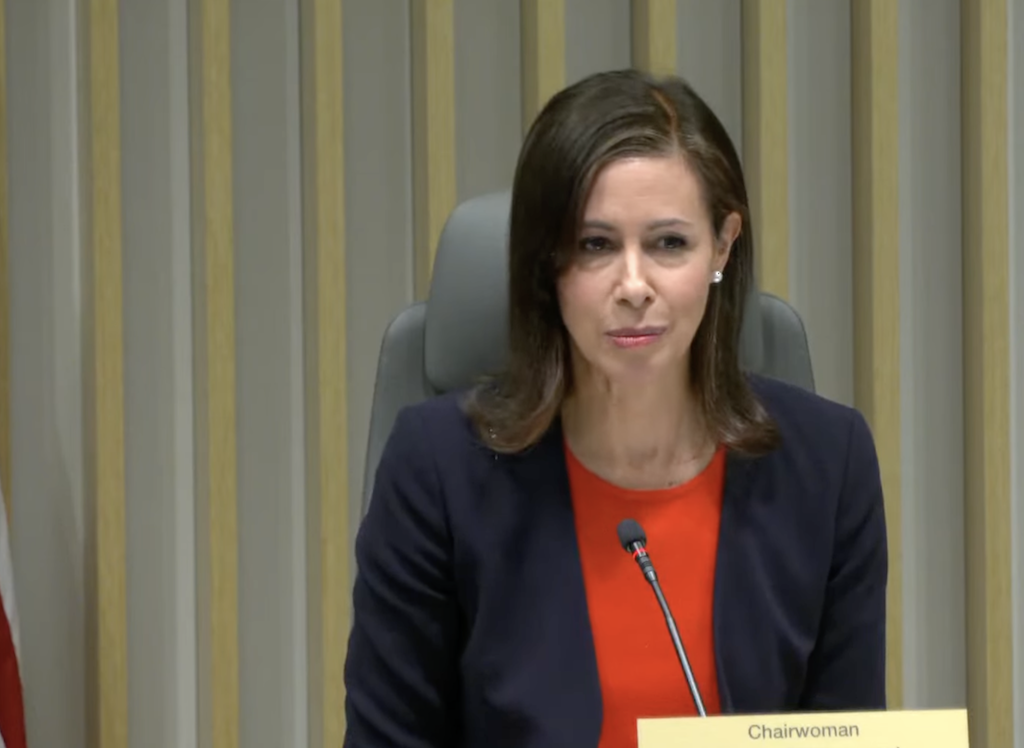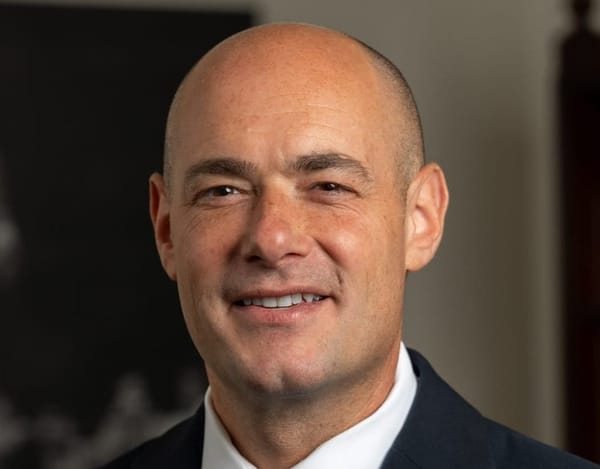FCC Adopts New Pole Attachment Rules at December Meeting
The commission set up a “rapid response team” to handle disputes.
Jake Neenan

WASHINGTON, December 13, 2023 – The Federal Communications Commission voted on Wednesday to set up a dedicated team to resolve pole attachment disputes and to expand its definition of a “red tagged” pole.
In what commission Chairwoman Jessica Rosenworcel said is an effort to reduce friction for the Infrastructure, Investment and Jobs Act’s $42.5 billion broadband expansion program, the Rapid Broadband Assessment Team will be on call to resolve disagreements between utility and telecommunications companies that could hinder broadband deployments.
Part of the team’s duties will be screening disputes for placement on the commission’s “Accelerated Docket,” meaning the FCC would adjudicate the issue in under 60 days. The FCC has authority to set terms of pole attachment deals in 26 states. Other states have their own laws that supplant commission rules on the issue.
The new rules make it harder for utilities to offload those costs on to attachers by updating the commission’s definition of “red tagged” poles – the replacement cost of which cannot be allocated entirely to telecoms. That now covers all poles utilities identify as needing replacement for any reason other than a lack of capacity for new equipment.
In updates from the public draft circulated in November, commissioners said the adopted language clarified utilities’ obligations to share easement information and that the first 3,000 poles in a bulk application must be processed according to the FCC’s timeline.
Both publicly and in comments to the commission, telecom companies have argued that utilities unfairly pass the entire cost of replacement on to them, even when poles are already unsafe and would need to be replaced even without their extra equipment. They say the cost should be shared because the owner benefits from the new pole.
Utilities say they would not normally replace the poles being used by telecom companies, either because they are structurally sound or to phase out old lines, and don’t benefit from the installation of newer poles.
“I thought I’d seen tough fights,” said Commissioner Brendan Carr. But the ongoing dispute over pole attachments has “made all the fights we’ve had, from Title II to digital equity to major mergers, look like pillow fights in comparison.”
That’s a reference not to the thousands of comments filed with the commission since it first sought comment on replacement costs in 2022, but to the reaction Carr said he received after suggesting pole owners should pay more of those costs at a House oversight hearing earlier this month.
The approved measure also requires pole owners to provide attachers with recent inspection reports and seeks comment on updating commission rules on when telecoms can do their own contracting work to prepare a pole for attachments.
Robotexts and “lead generators”
In the commission’s latest move to combat scam calls and texts, commissioners adopted new rules on robotexts and closed the so-called “lead generator loophole.”
That refers to the practice of businesses like comparison shopping sites taking phone numbers that consumers voluntarily provide and providing them to a multitude of other entities that can send scam calls and texts.
For example, the FCC’s draft rules circulated before the final vote mention the example of a website obtaining consumers’ consent to receive robocalls from “marketing partners.” That phrase referred to a list of over 5,000 entities, all of whom were then freely able to send those consumers robocalls and robotexts.
Under the new rules, only companies that consumers specifically consent to hearing from can send robocalls and texts.
Republican Commissioner Nathan Simington dissented in part to the provision, citing concerns from the Small Business Administration that its members might have more difficulty finding customers under the new rules.
The rules also require mobile carriers to block texts from numbers the commission flags as engaging in illegal activity and clarifies that numbers on the National Do-Not-Call Registry are also blacklisted from sending texts.
Commissioners will be hearing comments on additional proposed text blocking measures and instituting a text authentication scheme similar to the FCC’s STIR/SHAKEN protocol for voice calls.
Data breach notifications
The commission also approved new data breach notification rules for telecom and VoIP providers.
The measure expands those rules to cover more personally identifiable information and expands the FCC’s definition of “breach” to include inadvertent access to protected customer information.
In cases where companies can determine that customers are unlikely to be harmed by a breach, or have hard evidence that only encrypted information was accessed, they will no longer have to notify customers under the new rules.
Commissioners also did away with the 7-day waiting period for carriers to notify customers of such breaches, now requiring customers to be notified without an unreasonable delay after federal authorities.
Republican commissioners Carr and Simington dissented, arguing the measure was too similar to commission rules that Congress nullified in 2017.
Video service fees
The FCC also voted to seek comment on a proposal to prohibit early termination fees from cable and satellite video providers.
The proposed rules would also stop providers from charging customers who terminate service for the time remaining in their billing cycle.
A 2021 executive order directed the agency to consider such measures.
The commission’s two Republicans again dissented from the move, arguing companies would pass the lost money on to consumers and raise rates across the board.
Commissioners also voted to seek comment on making all mobile devices compatible with hearing aids and to streamline some filing requirements in its Rural Health Care Program, a broadband subsidy.








Member discussion